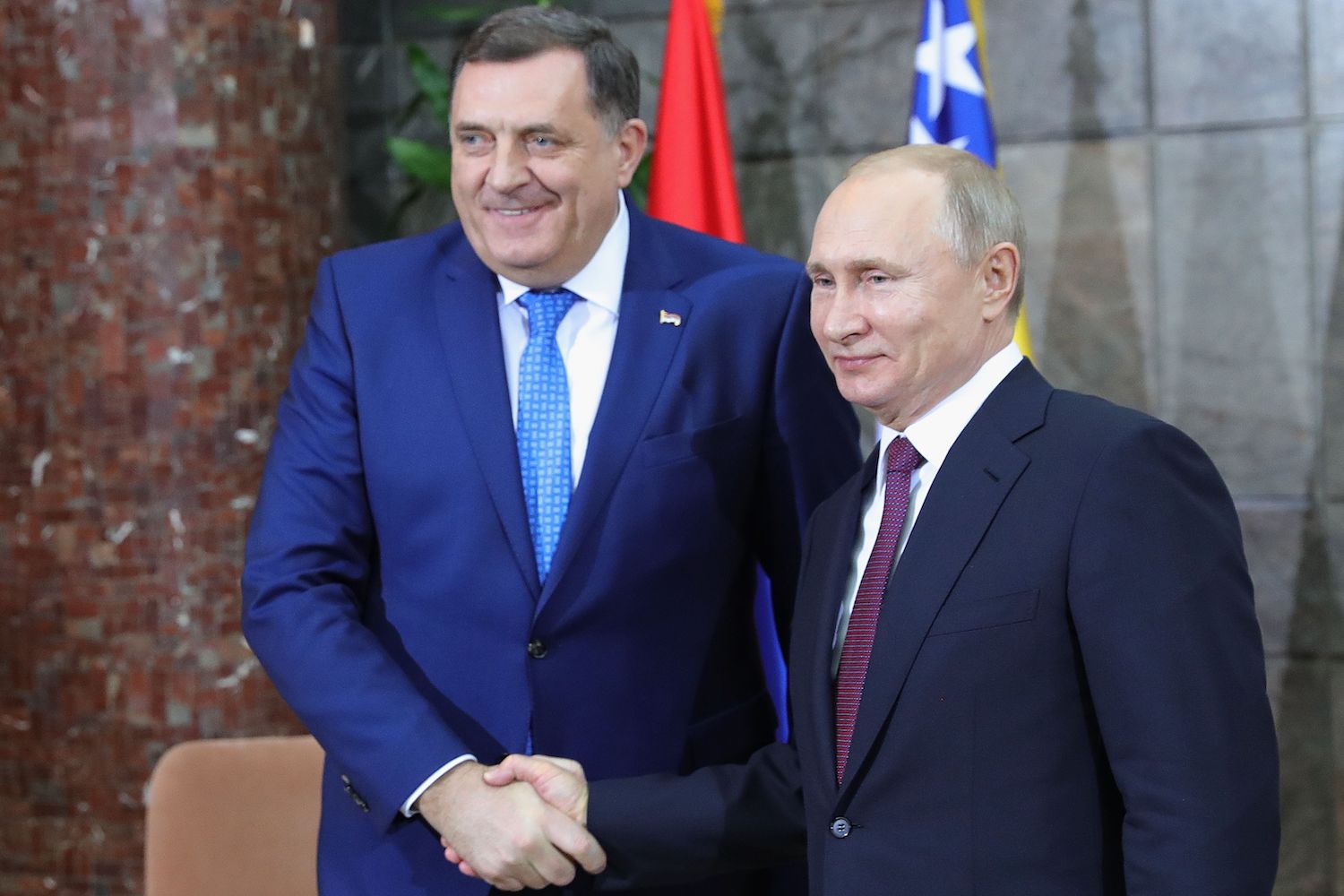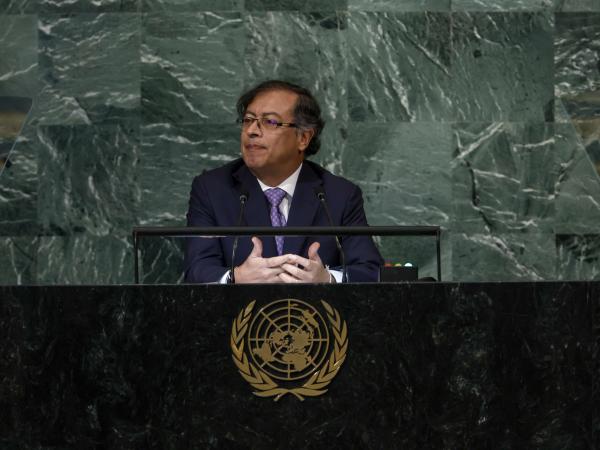Russian President Vladimir Putin has recalled to Moscow a strong “comrade” in the Balkans, Bosnian Serb separatist leader Milorad Dodik, days after he backed Russia’s invasion of Ukraine, Russian and Serbian media reported.
In this unusual visit to Moscow by a European politician, the Russian president praised his country’s “strategic partnership” with Serbia, which has partially and half-heartedly supported the invasion.
The meeting with Dodik came despite repeated warnings from the European Union that Serbia must align its foreign policy with the bloc if it truly wants to become a full member. Belgrade has been trying for years, it has managed to obtain concessions at the level of Schengen visas, but no more than that.
Dodik is the Bosnian Serb member of Bosnia’s tripartite presidency, and has met Putin frequently, particularly ahead of his country’s elections, in an apparent attempt to show the highly pro-Russian Bosnian Serb electorate that he has Putin’s support. .
But the nationalist politician is known in the Balkan world for his fascist profile, for being an admirer of Adolf Hitler and for trying to create a group of paramilitary militias to combat pro-democracy movements.
The last time Dodik met with Putin was last June, four months after the Russian invasion of Ukraine.
The West has accused Moscow of trying to destabilize both Bosnia and the rest of the Balkan countries through its proxies in Serbia and Bosnia. And Dodik has openly advocated separating the Serb-controlled half of Bosnia from a Bosnian-Croat federation and uniting it with neighboring Serbia.
A US-brokered peace deal in 1995 ended the war in Bosnia, which has left at least 100,000 dead and millions homeless, as well as deepening divisions among its three main ethnic groups.
Moscow has inserted itself into this panorama by tacitly supporting Dodik’s separatist policies.






